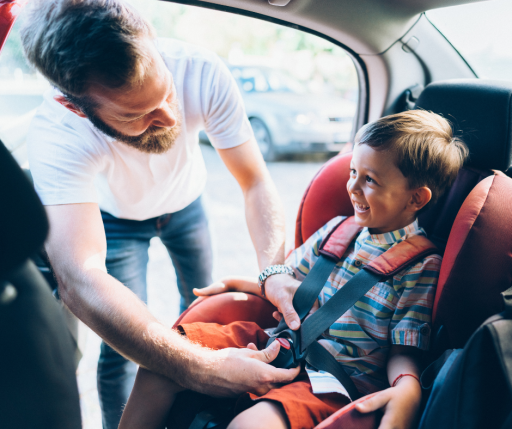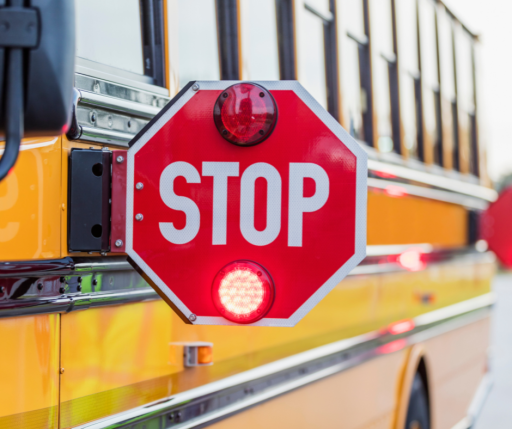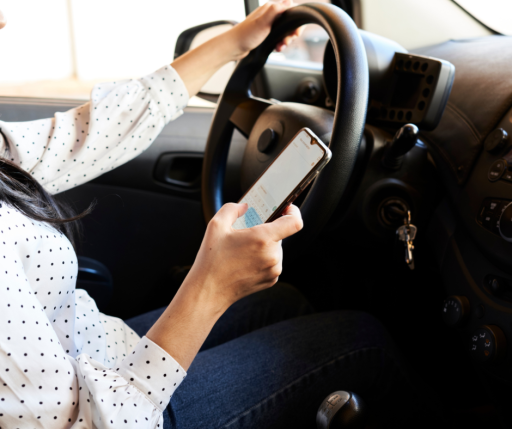August is back to school & Child Safety Awareness Month. Throughout the country, kids are grabbing their backpacks, packing their things, and getting ready to hit the classroom again. As they do, parents, caregivers, and guardians have one thing on their minds: child safety.
And for a good reason – child safety is a serious concern throughout the school year. While it’s not a topic anyone likes to think about, accidents involving school buses, vehicles, and school zones are common.
According to Florida Highway Safety and Motor Vehicles (FLHSMV), 118,668 children between the ages of 0 and 17 were involved in crashes in Florida in 2021, resulting in 1,215 serious bodily injuries and 167 fatalities.
These accidents are preventable, and there are proactive steps you can take to avoid these types of accidents and help keep kids safe this year.
5 Back-to-School Child Safety Driving Tips
Keep kids safe in and around cars and school busses with these five tips:
1. Require kids to buckle up
The book bag is packed, your little one has their lunch box, and it’s time for the daily drive to school!
Before you start your commute, though, make sure everyone in the car is buckled up. In Florida, state law requires all drivers, front-right passengers, and passengers under 18 to wear seat belts.
Every time you drive, everyone in the car should wear their seatbelt. Kids too young to use seatbelts should be secured in an age-appropriate booster or car seat—more on this in the next tip.
If you have a tough time getting your kids to buckle up, consider making a game of it: the person who puts their seatbelt on the fastest wins a small treat each morning.
2. Keep little kids safe in car seats

Before then, kids should be secured in an approved, correctly-installed car or booster seat suitable for their age, size, and weight. Learn about the various types of car seats and how to install them here.
Additionally, register your car seat and booster seats to get notifications of any relevant recalls, safety issues, or other concerns that may impact your car seat.
3. Drive carefully in school zones
Since 2013, pedestrian deaths among 12-19-year-olds have increased by 13%. Unfortunately, many of these accidents take place in school zones.
To ensure child safety this school year, ensure you’re slowing down in school zones. Observe all posted speed limits and watch for children as you drive.
If you’re dropping your kids off or picking them up, park in authorized areas and obey all relevant signage.
4. Stop for school busses

Today, the minimum ticket is $200, and a second offense within five years carries the risk of losing your license for a year.
In addition to keeping kids safe, stopping for school buses helps you avoid hefty fines and a possible personal injury lawsuit.
Additionally, you should be careful when following a school bus. Allow greater following distance than you would for a car, and make sure you’re stopping far enough back that kids have ample room to unload and move around the stopped bus.
NEVER pass a stopped bus from behind or from either direction if you’re on a one-way street. All surrounding traffic must stop when the bus’s yellow or red lights are flashing, and the stop arm is extended.
5. Teach your child basic safety
Teach your child to obey all traffic signals, signs, and lights when walking or biking to school.
Additionally, educate them on the dangers of distracted walking (texting or playing video games while walking).
For maximum safety, kids should walk or bike to and from school with a sibling, neighbor, or friend and should know never to engage in conversation or accept gifts or rides from strangers.
Bonus: Avoid distracted driving
Distracted walking is a leading cause of pedestrian accidents and fatalities, but distracted driving is just as dangerous. In Florida, using a handheld cell phone or another device while driving in designated school crossings, school zones, or active work zones is illegal.
If cited for using a phone in a school zone, the first offense will be $30 plus court fees. Second offenses double to $60 plus court fees and a penalty of three points on your license. In addition to helping you avoid fines and tickets, staying off your phone allows you to drive safer and sets an excellent example for your kids when they drive with you.
What Should I Do If My Child is Involved in an Accident?
While having a child involved in an accident is every parent’s worst nightmare, there is help. The first step is to contact a personal injury attorney in Pensacola to assist with the process.
Here at Ward & Barnes, our team specializes in seeking justice when child safety is not upheld. Whether the accident occurred in a school zone, in a car, or on a school bus, we can help you secure the settlement you need to get your family’s life back to normal.
Ward & Barnes, P.A. – Helping Ensure Child Safety
Back to school is an exciting time, but it can also be hazardous for kids. More cars, school buses, and pedestrians on the road increases the risk of accidents. Which makes walking, driving, and drop-off zones more dangerous.
While you can’t eliminate the risk of accidents around school zones & bus stops completely. Becoming a safer driver by employing the driving tips in this article could help immensely.
Fortunately, Ward & Barnes, P.A. is here for you if your child is involved in an accident this school year. Contact us today to learn more about our services, our team, or how we can assist you.


